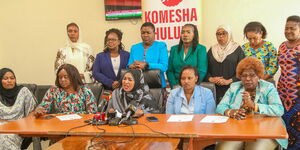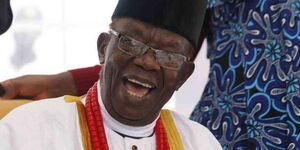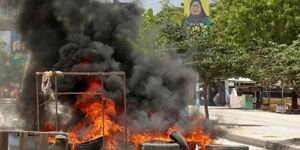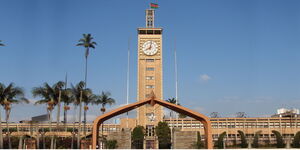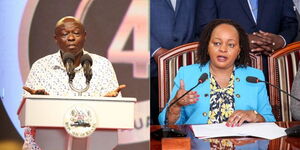The Independent Electoral and Boundaries Commission (IEBC) has filed a petition defending the swearing-in of UDA presidential candidate William Ruto and his running mate Rigathi Gachagua should they be declared winners.
In the document presented before the court, IEBC asked the Supreme Court to throw out a lawsuit challenging the eligibility of the Deputy President and his running mate to vie.
The commission supported Ruto and Gachagua’s position, in which they argued that the case filed against them was flawed.
IEBC argued that the Supreme Court has no power to determine the validity nominations of candidates in a general application.
Further, the Wafula Chebukati-led commission stated that the integrity issue raised by the petitioners opened the door for the Apex court to interfere with IEBC’s mandate.
In their joint reply, Ruto and Gachagua argue that the criminal and forfeiture cases against the latter (Gachagua) have not been settled by the court and therefore the duo cannot be disqualified unless Gachagua has exhausted the appeal process.
Ruto and Gachagua moved to court seeking to block the petition aiming to bar them from office should they be declared winners of the August 9 presidential election.
Through lawyer Elius Mutuma, the duo argued the case prevents them from "doctrine of exhaustion" with regards to the avenues of recourse available on rules of procedure on settlement of disputes.
"The suit herein is incompetent and incurably defective both in form and in substance and is therefore untenable," reads the court papers.
According to the petition, the question of exhaustion of administrative remedies arises when a litigant, aggrieved by an agency's action, seeks redress from a Court of law on the action without pursuing available remedies before the agency itself.
The exhaustion doctrine serves the purpose of ensuring that there is a postponement of judicial consideration of matters to ensure that a party is, first of all, diligent in the protection of his own interest within the mechanisms in place for resolution outside the Courts.
In a matter certified under a certificate of urgency, the petitioners want the duo blocked from ascending to power if declared winners by the IEBC citing integrity issues.
The 11 petitioners argued that failure by the Supreme Court to issue a directive blocking Ruto and Gachagua from assuming office if they won the August 9 polls amounted to abetting illegalities.



